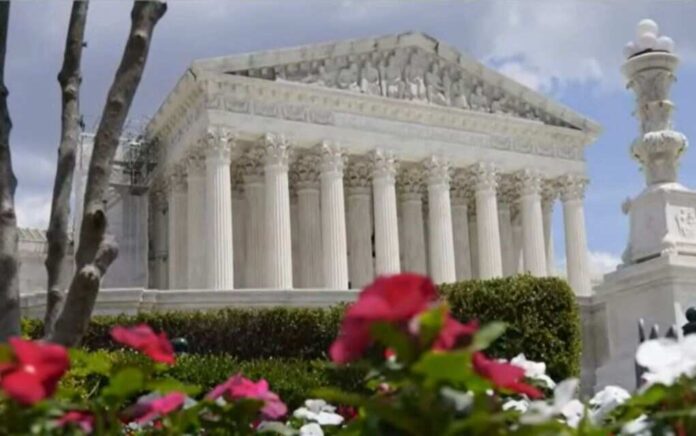
America is sorely divided. And the Courts are being tasked with hashing it out.
Now the Supreme Court made a dire decision with huge ramifications for Republicans
Supreme Court Declines Emergency Stay on South Carolina Bathroom Law
On September 10, 2025, the Supreme Court issued a 6-3 unsigned order denying South Carolina’s emergency petition to enforce a state law requiring students to use school bathrooms corresponding to their biological s-x.
The decision, which did not address the merits of the law, was based on the Court’s standards for granting emergency stays. South Carolina had sought to lift an injunction by the U.S. Court of Appeals for the Fourth Circuit, which blocked the law’s enforcement pending further litigation. The order noted that Justices Clarence Thomas, Samuel Alito, and Neil Gorsuch dissented, indicating they would have granted the stay.
The law, passed in 2024, mandates that public school students use restrooms and locker rooms aligned with their s-x assigned at birth, prompting legal challenges from transgender students and advocacy groups who argue it violates federal protections under Title IX and the Equal Protection Clause.
The Fourth Circuit’s injunction relied on its 2020 ruling in Grimm v. Gloucester County School Board, which upheld a transgender student’s right to use facilities matching their gender identity.
Legal Arguments and Context
South Carolina Solicitor General Thomas Hydrick argued in an August 2025 petition that the Fourth Circuit’s reliance on Grimm was flawed, calling it a “discredited” decision inconsistent with recent Supreme Court rulings. Hydrick emphasized that the injunction causes “actual, ongoing, material harms” to the state, school districts, and students by disrupting the status quo.
He urged the Court to grant a stay, citing the upcoming case B.P.J. v. West Virginia State Board of Education, set for the 2025-2026 term, which will examine whether state laws restricting sports participation by biological s-x violate federal law. Another case addressing similar restrictions is also on the Court’s docket, signaling potential clarity on related issues.
The Supreme Court’s denial of the stay does not resolve the underlying legal questions but reflects procedural caution, as emergency relief requires a high threshold, including a likelihood of success on the merits and evidence of irreparable harm.
The dissenting justices’ willingness to grant the stay suggests differing views on the balance of harms or the strength of South Carolina’s case.
Broader Implications and Court Activity
The decision comes amid a busy period for the Supreme Court’s emergency docket, with the new term set to begin in October 2025. Earlier in the week, the Court voted 6-3 to lift restrictions on immigration operations in southern California, indicating active engagement with contentious issues.
The South Carolina case highlights ongoing national debates over transgender rights in schools, with several states enacting similar bathroom and sports laws, often facing legal challenges. The Fourth Circuit’s injunction remains in place, and the case will continue through lower courts, potentially returning to the Supreme Court for a merits review.
The ruling has drawn varied reactions. Supporters of the law, including South Carolina officials, argue it protects student privacy and safety, while opponents, including the ACLU, contend it discriminates against transgender students, creating hostile school environments.
The Court’s upcoming cases on s-x-based restrictions may provide broader guidance, potentially reshaping how states regulate facilities and sports based on biological s-x.



















